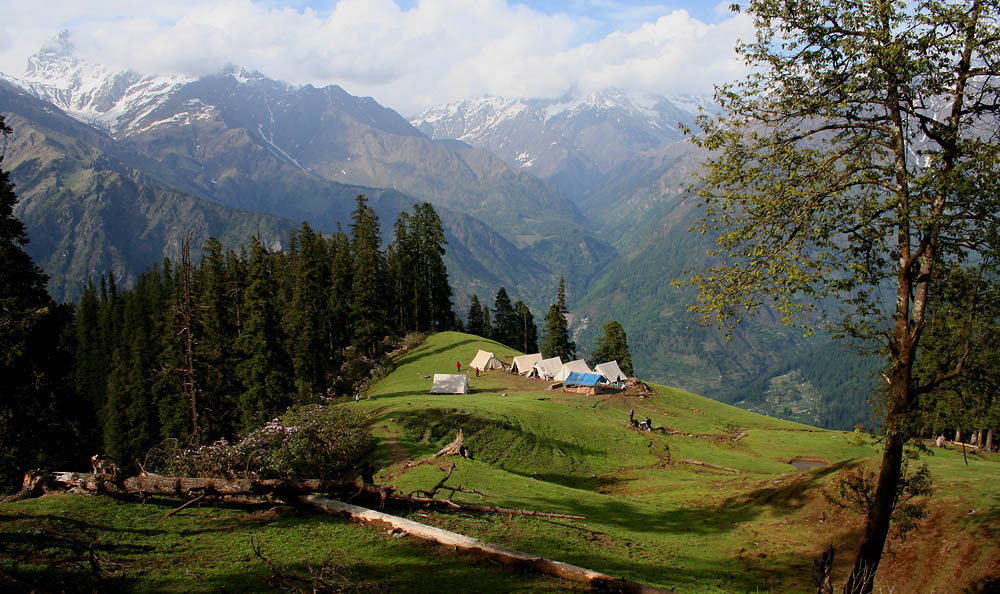 | ||
Outdoor recreation or outdoor activity refers to leisure pursuits engaged in the outdoors, often in natural or semi-natural settings out of town. Examples include adventure racing, backpacking, cycling, camping, canoeing, canyoning, caving, disc golf, fishing, hiking, horseback riding, hunting, kayaking, mountaineering, photography, adventure park, waterskiing, jetskiing, rock climbing, running, sailing, skiing, surfing, ATV riding, and sports.
Contents
Outdoor recreation may also refer to a team sport game or practice held in an outdoor setting. When the recreation involves excitement, physical challenge, or risk, such as in rafting or climbing, it is sometimes referred to as adventure recreation. The two primary purposes for outdoor recreation are beneficial use and pleasurable appreciation.
Purpose
Beneficial use is related to the physical and social rewards that goal-directed activity instills in individuals or groups. Some outdoor goal-directed activities are: backpacking, canoeing, canyoning, caving, climbing, hiking, hill walking, hunting, kayaking, and rafting. Arguably broader groupings of goal-directed outdoor activities would include water sports, snow sports, and horseback riding. Goal-directed outdoor activities are predominantly physical, though they may also be mentally, emotionally, and spiritually rewarding.
The outdoors as a physical or social setting may meet the needs of physical health, self-sufficiency, risk-taking, the building of social ties (including teambuilding), and the needs of achievement (such as practicing, enhancing and challenging skills, testing stamina and endurance, and seeking adventure or excitement). The outdoors can be an environment in which people "show what they can do".
Pleasurable appreciation encourages experiences of being "let in on nature's show". Enhancement of inner perceptual and/or spiritual life may be experienced through outdoor activities and outdoor-related activities such as nature study, aesthetic contemplation, meditation, painting, photography, archeological or historical research, and indigenous culture among others. These activities may also be physically rewarding.
Many people in modern civilizations believe that the value of nature is found only in its "utilitarian value" (beneficial use). They would discount the inner perceptual and/or spiritual benefits of the "intrinsic value of nature" that may be experienced during pleasurable appreciation.
Outdoor activities may also be pursued for the purposes of finding peace in nature, enjoying life, and relaxing. They are alternatives to expensive forms of tourism. Outdoor activities are also frequently used as a medium in education and teambuilding.
Trekking
Trekking is about enjoying a great walking holiday. Treks can be day hikes, overnight or extended hikes. An example of a day trek is hiking during the day and returning at night to a lodge for a hot meal and a comfortable bed. Trekking can be more enjoyable when undertaken while being generally physically fit. Physical preparation for trekking includes cycling, swimming, jogging and long walks. To ensure the safest experience possible it is generally a good idea to have some form of experience with basic survival skills, first aid, and orienteering when going for extended hikes or staying out overnight. It's also expected that backpackers leave no trace while enjoying the outdoors.
Mountain biking
The activity of mountain biking involves steering a mountain cycle over rocky tracks and around boulder-strewn paths. To tackle the trails, the requirements are physical strength, stamina and a strong mountain cycle. Mountain bikes or ATBs (all-terrain bikes) feature a rugged frame and fork. Their frames are often built of aluminum so they are lightweight and stiff, making them efficient to ride.
Many styles of mountain biking are practiced, including all mountain, downhill, trials, dirt jumping, trail riding, and cross country. The latter two are the most common.
Balance, core strength, and endurance are all physical traits that are required to go mountain biking. Riders also need bike handling skills and the ability to make basic repairs to their bikes. Advanced mountain bikers often attempt technical descents as well as some of the more intense styles of mountain biking, such as down hilling and free riding.
Canyoning
Canyoning is an activity which involves climbing, descending, jumping and trekking through canyons. The sport originates from caving and involves both caving and climbing techniques. When people mention canyoning they are typically referring to descents that involve rope work, down-climbing, or jumps that are technical in nature. Canyoning is frequently done in remote and rugged settings and often requires navigational, route-finding and other wilderness skills.
Education
University outdoor recreation programs are becoming more popular in the United States. Universities often offer indoor rock climbing walls, equipment rental, ropes courses and trip programming. A few universities give degrees in adventure recreation, which aims to teach graduates how to run businesses in the field of adventure recreation. Along with hands-on training on activities included in adventure recreation, basic courses needed for any business, such as accounting, are required to obtain a degree.
